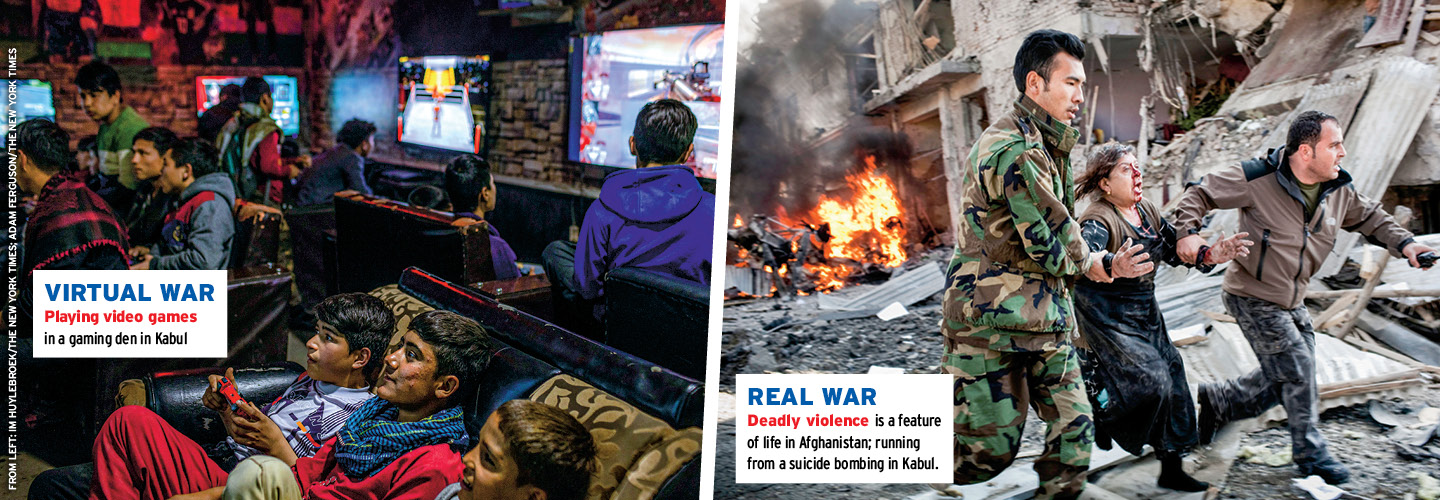Rifle shots, hurried footsteps, and distant explosions. The rat-a-tat of a firefight. Cars mangled from grenades.
It could have been any day in Kabul, the capital of Afghanistan, where assassinations, terrorist attacks, and random violence have become routine, and the city often feels as if it’s under siege. But Safiullah Sharifi was sitting on a dusty stoop in the Qala-e Fatullah neighborhood, and the death and destruction unfurled on his phone, held landscape-style in his hands.
“On Friday I play from early morning to around 4 p.m.,” says Sharifi, 20, with a sly grin. “Almost every night, it’s 8 p.m. to 3 a.m.”
The game is called PlayerUnknown’s Battlegrounds, but to its millions of players worldwide, no matter the language, it’s referred to as PUBG (pub-gee). It’s violent. And it’s widely played across Afghanistan, almost as an escape from reality as the war in that nation—the real one—grinds on.
Rifle shots, hurried footsteps, and distant explosions. The rat-a-tat of a firefight. Cars wrecked by grenades.
It could have been any day in Kabul, the capital of Afghanistan. Assassinations, terrorist attacks, and random violence have become routine there. As a result, the city often feels as if it’s under siege. But Safiullah Sharifi was sitting on a dusty stoop in the Qala-e Fatullah neighborhood. And the death and destruction took place on his phone, which he held landscape-style in his hands.
“On Friday, I play from early morning to around 4 p.m.,” says Sharifi, 20, with a sly grin. “Almost every night, it’s 8 p.m. to 3 a.m.”
The game is called PlayerUnknown’s Battlegrounds. But to its millions of players worldwide, no matter the language, it’s referred to as PUBG (pub-gee). It’s violent. And it’s widely played across Afghanistan. It’s almost an escape from reality as the real war taking place in that nation grinds on.

